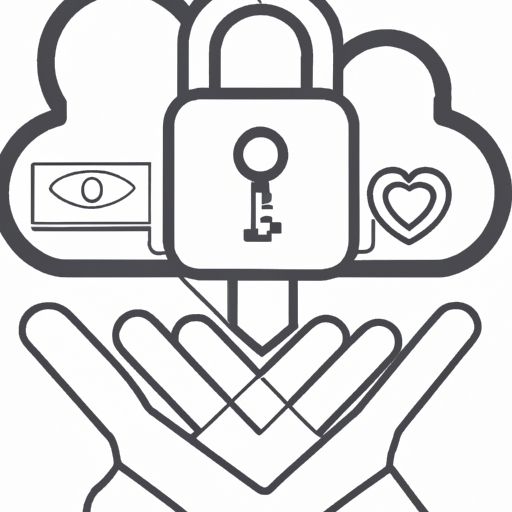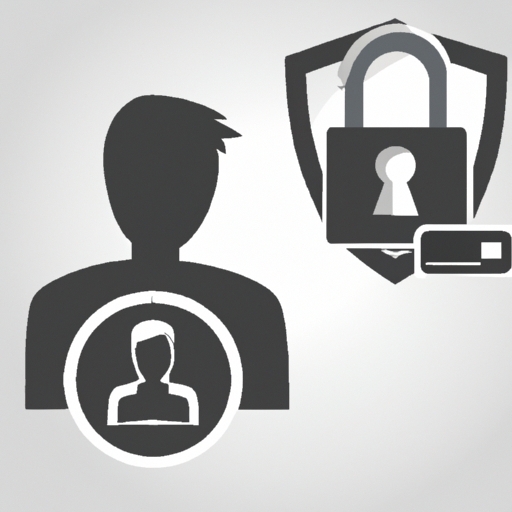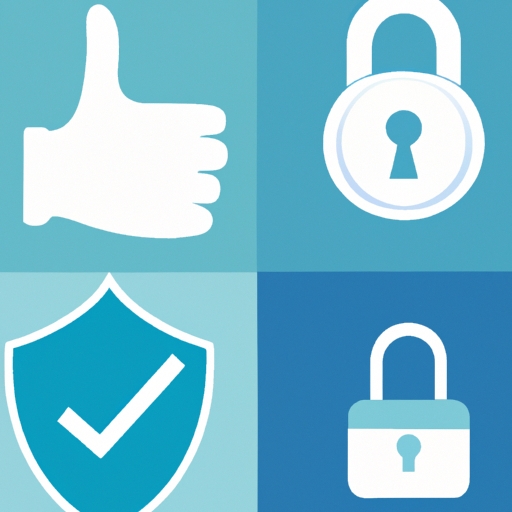
The Human Element: Securitys Weakest Link?
Okay, so, we all know cybersecurity is, like, a huge deal, right? Master Holistic Security: A Step-by-Step Blueprint . Firewalls, encryption, all that jazz. But honestly? Sometimes I think we forget the most important part: people. You know, the human element. And, let's be real, that's often securitys weakest link. (Oops, gave the game away already!)
Think about it. You can have the fanciest, most state-of-the-art security system known to humankind. But if someone clicks on a dodgy link in an email – bam! – youre compromised. All that money spent on tech is just… gone. Poof. Because, you know, Brenda in accounting just really wanted to see that picture of a cute kitten. (No offense to Brenda, we all love kittens).
And its not just about phishing scams, although those are a biggie. Its about password security too. People using "password123" or their dogs name? (Seriously, people still do that!). Or writing their passwords down on sticky notes attached to their monitor? It's almost like theyre trying to get hacked. And training, ugh. Nobody wants to sit through hours of boring security lectures. So they don't pay attention. Which defeats the whole purpose, innit?
So, while tech is super important – gotta have it, no question – we cant just rely on it. We need to address the human side of security too. Train people properly, make it engaging, and actually understandable. Basically, we gotta make security about more than just the technology. Its about understanding human behavior, and motivating people to actually want to be secure. It all comes down to the people, after all. Human error is inevitable, but maybe, just maybe, we can make it less likely. (Fingers crossed!).

Cultivating a Security-Aware Culture (Its More Than Just Passwords!)
Okay, so, like, everyone thinks security is all about firewalls and fancy software, right? (Totally get it, those things are important!). But honestly, the biggest hole in your security net? Its usually us – humans. And thats why cultivating a security-aware culture is so, so crucial. Its the "holistic" part of holistic security, ya know, the human side.
Think about it. No matter how many layers of encryption you have, one careless click on a phishing email can undo everything. Or, sharing a password (ugh, dont do it!) because its "easier." (Seriously, people still do that!). A truly secure organization isnt just protected by tech; Its protected by people who understand the risks and actively work to mitigate them.
Building this kind of culture isnt, like, a quick fix. Its a process. It starts with education. Not just boring, mandatory training videos (though, yeah, those are probably necessary), but engaging, relatable education. Show employees how scams work, how to spot suspicious emails, and why strong passwords actually matter. Make it relevant to their lives – both at work and at home. Because, lets face it, if they're careless at home, they're probably gonna be careless at work too.
And its not just about telling people what not to do. Its about empowering them. Give them the tools and resources they need to be secure. Make it easy to report suspicious activity (like, really easy – no complicated forms!). And, most importantly, create a culture where people feel comfortable speaking up about security concerns without fear of being, like, totally judged.
Ultimately, a security-aware culture is about fostering a sense of shared responsibility. Its about making security a part of everyones job, not just the IT departments. And, yeah, it takes time and effort. But its worth it. Because in the end, your people are your strongest defense. (Or your weakest link, if you dont get it right). So, invest in them! Youll thank yourself later.

Training and Education: Empowering Employees as Security Assets (Because Lets Face It, Tech Aint Everything)
Okay, so, we all know about firewalls and encryption and all that jazz. But honestly? Sometimes the biggest security hole aint a line of code, its... well, its Brenda in accounting clicking on that obviously phishy email. (No offense, Brenda, if youre reading this!). Thats why training and education, especially when it comes to security, is like, totally crucial. Its not just about making sure employees know the company policy, its about empowering them to be actual assets in the security game.
Think about it: your employees are on the front lines. Theyre seeing all the weird stuff, the suspicious emails, the guy who keeps tailgating into the building (is he even supposed to be here?). If they dont know what to look for, or worse, if theyre afraid to speak up because they dont wanna seem dumb, youre basically leaving the back door wide open.
Effective training isnt just some boring PowerPoint presentation that everyone zones out during. (Weve all been there, right?). Its gotta be engaging, relevant, and, dare I say, maybe even a little bit fun. Think real-life scenarios, interactive simulations, and maybe even a little gamification to keep people interested. And it has to be ongoing, not just a one-time thing during onboarding, because the threats are constantly evolving, yknow?
And its not just about the "what" of security (like, dont click on suspicious links). Its also about the "why." Explaining why these practices are important, why the company cares about security, and why it matters to each individual employee can make a huge difference. People are more likely to follow the rules if they understand the reasoning behind them.
Basically, investing in security training and education is investing in your employees. Its showing them that you trust them to be part of the solution, not just a potential problem (which, lets be honest, a lot of companies seem to think). And a well-trained, security-conscious workforce is, like, the best defense you can have, even better than that super-expensive firewall you just bought. So, yeah, train your people! Its totally worth it.

Addressing Human Error: Strategies for Mitigation (Beyond Tech: Holistic Securitys Human Side)
Okay, so, we all know techs important, right? Firewalls, encryption, the whole shebang. But honestly, the biggest security hole? Its usually us. Humans. We click on dodgy links, use weak passwords (password123 anyone?), and just generally mess things up. Thats why, when were talking about real, holistic security, we gotta address human error, like, seriously.
Mitigation isnt about blaming people, though. (Thats just gonna make things worse). Its about understanding why we make mistakes in the first place. managed services new york city Are we tired? Stressed? Overloaded with information? Are the systems were using, like, super confusing? (Because, lets face it, some of them are).
One key strategy is definitely training. But not the boring, read-this-manual-and-sign-here kind. We need engaging, relevant training that actually sticks. You know, like, real-world scenarios and maybe even a little bit of gamification to make it fun. (Who doesnt love a good phishing simulation?)
Then theres simplifying things. Make passwords easier to manage (password managers are our friends!), streamline processes, and provide clear instructions. Reduce cognitive overload, you know? The less we have to think, the less likely we are to make a dumb mistake.
And finally, fostering a culture of open communication. People need to feel comfortable reporting errors without fear of punishment. If someone clicks on a bad link, they should be able to say something without getting yelled at. (Because honestly, scaring them into silence just makes the problem worse in the long run.)
Basically, addressing human error is about creating a system that supports humans, not one that expects us to be perfect robots. Its a continuous process, a learning thing, but its crucial for building a truly secure environment. And you know, its probably the most important part of all.

Okay, so, leadership in holistic security, right? Its not just about fancy firewalls and, like, complicated passwords (though those are important, don't get me wrong). Its way more about, well, people. And thats where leadership really shines, or, you know, kinda falls flat on its face if they're not doing it right.
Think about it. If the leader is all about, "Do as I say, not as I do," nobodys going to actually care about security. Theyll just see it as another annoying rule to break. A good leader, though? They embody the security culture. Theyre the first to admit when they mess up (we all do, right?), they actively encourage people to report suspicious stuff, even if it's a little embarrassing, and they, like, listen when people have concerns.
Its about creating a safe space, you know? (Not a literal safe space, calm down). A place where people feel comfortable saying, "Hey, I think I clicked on a dodgy link," without fearing they're gonna get yelled at or, worse, fired. Because if people are scared to speak up, those small security hiccups can turn into HUGE problems. (And nobody wants that, trust me).
Leadership also means, like, actually investing in training and awareness. Not just a boring PowerPoint presentation once a year, but ongoing, engaging stuff that keeps security top of mind. And its gotta be relevant to everyone, not just the IT folks. The receptionist, the HR team, the sales guys… Everyone needs to understand their role in keeping the organization secure.
Basically, leadership is the glue that holds the whole holistic security thing together. Without it, youve just got a bunch of fancy tools and policies that nobody actually follows, or understands. And that? Thats a recipe for disaster. It really is about leading by example, fostering trust, and making security a team effort, not just some annoying chore. So yeah, leaders gotta step up!
Well-being and Security: Reducing Stress and Improving Vigilance
Okay, so, like, when we talk about security, especially in this whole "Beyond Tech" thing, we cant just focus on firewalls and passwords, ya know? We gotta think about the people using those things. And, honestly, if those people are stressed out and tired, all the fancy tech in the world aint gonna help much.
Think about it.

So, whats the answer? We gotta focus on well-being! Things like encouraging people to take breaks, promoting a healthy work-life balance (easier said than done, I know), and even just something as simple as offering mindfulness workshops can make a huge difference. If people are feeling better, theyre gonna be more alert, more focused, and, ultimately, more vigilant.
Its not just about reducing mistakes, either. When people feel supported and valued, theyre more likely to actually care about security. Theyll be more invested in following procedures, reporting suspicious activity, and generally being a part of the security solution, not a potential weakness. Plus, theyll probably be nicer to each other, which is always a bonus. So, yeah, well-being and security? Theyre like, totally connected. You cant have one without at least thinking about the other, if you want real, lasting security. Its the human side, and we all know how important that is.
Measuring the Impact of Human-Centric Security Initiatives
So, youve gone all in on human-centric security, right? (Good for you!). Youve ditched the, like, totally impenetrable firewall fantasy and started focusing on the squishy, unpredictable, coffee-fueled humans behind the keyboards. But heres the thing: how do you know its actually working? Its not like you can just, you know, plug a person into a vulnerability scanner.
Measuring the impact is, frankly, kinda tricky. Were not talking about patching servers; were talking about changing behavior. And people, well, theyre complicated. Traditional metrics like "number of phishing emails blocked" are still important, sure. (Gotta keep those numbers up!). But they dont tell the whole story. Did people almost click? Did they report it? Did they even notice it?
We gotta dig deeper. Think about things like: employee surveys, (yeah, I know, everyone groans), but they can give you a sense of security awareness and if people actually understand the policies. Tabletop exercises are great too, simulate a real-world attack and see how people react, not just in theory, but in a (hopefully) low-pressure environment. Look at incident response times, are people reporting suspicious activity faster? Are they following protocol? (Or are they just freaking out and emailing everyone?).
And dont forget the human element! managed service new york Are people feeling more empowered to speak up about security concerns? Is there a culture of open communication and learning from mistakes? If people are afraid of getting blamed, (which, honestly, happens way too often), theyre less likely to report issues.
Ultimately, measuring the impact of human-centric security is an ongoing process. Its about constantly monitoring, adapting, and learning from both successes and failures. It aint perfect, and youll probably make mistakes (everyone does!), but by focusing on the human side of security, youre building a much more resilient and adaptable defense. Plus, you might even end up with happier and more secure employees. And thats, like, a win-win.